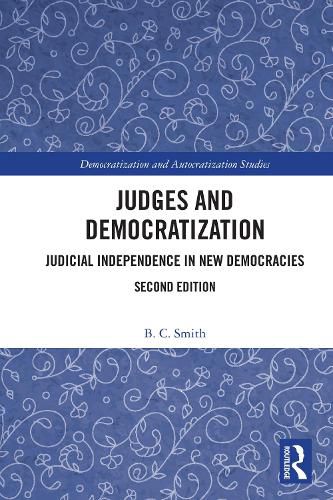Readings Newsletter
Become a Readings Member to make your shopping experience even easier.
Sign in or sign up for free!
You’re not far away from qualifying for FREE standard shipping within Australia
You’ve qualified for FREE standard shipping within Australia
The cart is loading…






This second edition examines judicial independence as an aspect of democratization based on the premise that democracy cannot be consolidated without the rule of law of which judicial independence is an indispensable part.
It pays particular attention to the restraints placed upon judicial independence and examines the reforms which are being applied, or remain to be adopted, in order to guard against the different kinds of interference which prevent judicial decisions being taken in a wholly impartial way. Focusing on the growing authoritarianism in the new democracies of Eastern Europe, Latin America, Asia and Africa, the book analyses the paradox of judicial activism arising from the independence endowed upon the judiciary and the rights bestowed on citizens by post-authoritarian constitutions. Finally, it asks how judicial accountability can be made compatible with the preservation of judicial independence when the concept of an accountable, independent judiciary appears to be a contradiction in terms.
This book will be of key interest to scholars and students of judicial studies, democratization and autocratization studies, constitutionalism, global governance, and more broadly comparative government/politics, human rights and comparative public law.
$9.00 standard shipping within Australia
FREE standard shipping within Australia for orders over $100.00
Express & International shipping calculated at checkout
This second edition examines judicial independence as an aspect of democratization based on the premise that democracy cannot be consolidated without the rule of law of which judicial independence is an indispensable part.
It pays particular attention to the restraints placed upon judicial independence and examines the reforms which are being applied, or remain to be adopted, in order to guard against the different kinds of interference which prevent judicial decisions being taken in a wholly impartial way. Focusing on the growing authoritarianism in the new democracies of Eastern Europe, Latin America, Asia and Africa, the book analyses the paradox of judicial activism arising from the independence endowed upon the judiciary and the rights bestowed on citizens by post-authoritarian constitutions. Finally, it asks how judicial accountability can be made compatible with the preservation of judicial independence when the concept of an accountable, independent judiciary appears to be a contradiction in terms.
This book will be of key interest to scholars and students of judicial studies, democratization and autocratization studies, constitutionalism, global governance, and more broadly comparative government/politics, human rights and comparative public law.